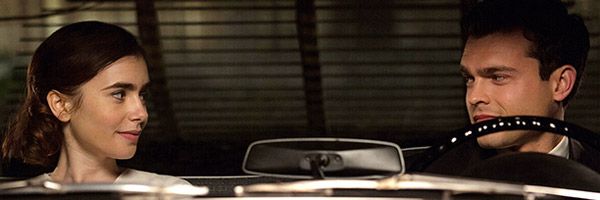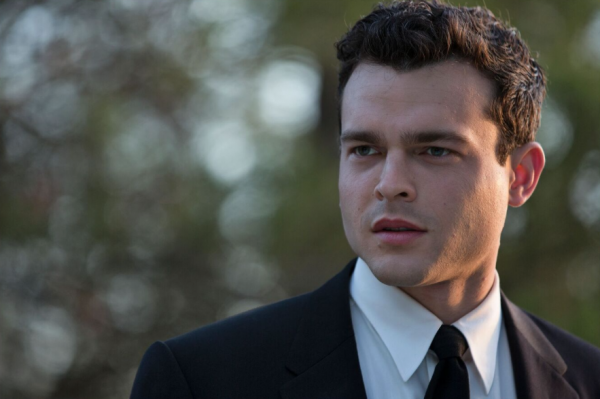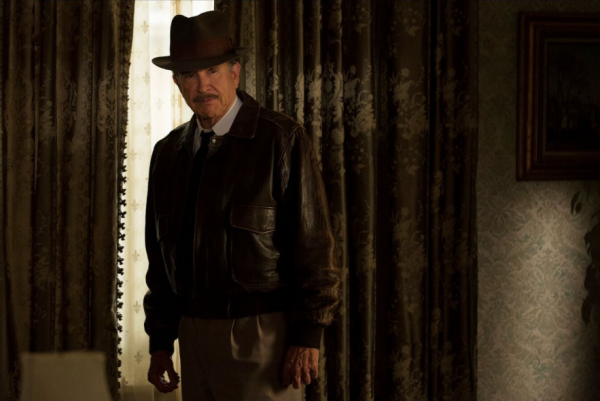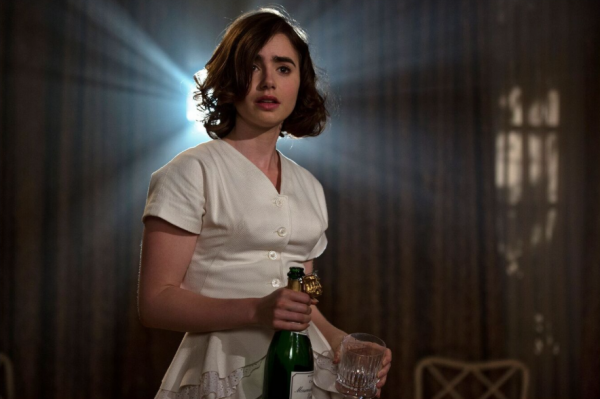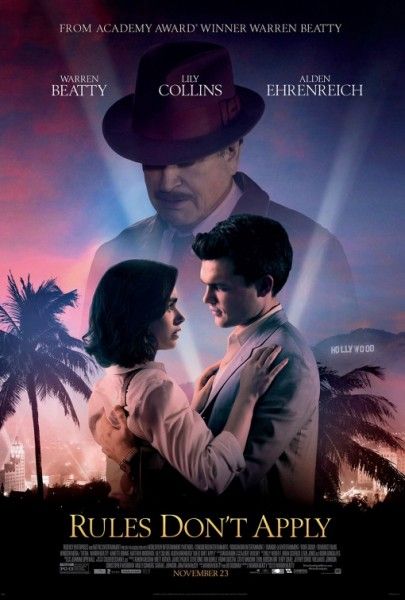[NOTE: This is a re-post of our review from the AFI Film Festival; Rules Don't Apply is currently in theaters]
Warren Beatty has always been a cinematic revolutionary. With his very first film performance, 1961’s Splendor in the Grass, his beguiling looks, innate charisma and Bud Stamper’s blue balls essentially announced that the movies were going to explore the complexity of sex whether audiences were prepared for it or not. 1967’s Bonnie & Clyde announced that the movies were going to explore bloodletting violence whether audiences were prepared for it or not. 1981’s Reds, for which he won a Best Director Oscar, profiled an American Communist writer as an informed and deeply patriotic individual provided empathy during the height of the Cold War. And the final film that Beatty directed before going into career hibernation was 1998’s Bulworth, a film that shows media’s love of a controversy and eccentric personalities can overexpose an elected official and hand them a whole new audience.
During his entire career, what Beatty most wanted to do was make a biopic about Howard Hughes, the eccentric billionaire inventor who pushed plane production to soaring heights, pushed Hollywood into the Production Code for producing movies that showed too much cleavage, and even invented the first push-up bra. Beatty’s three-decade plus obsession with making a Hughes picture focused on Hughes’ seductive qualities, what endless money can do, including essentially creating an elaborate system of a studio harem of young women who are a mere phone call away from being whisked to his private room. Beatty, of course, has had a longtime reputation of being an extremely smooth operator in Hollywood. And by the time that Beatty finally got to make his Hughes’ picture—Rules Don’t Apply—Beatty is actually pushing Hughes away to the secondary story of his film. And his Hughes is more of a teddy bear with dementia, daddy issues, and a sweet tooth.
There’s a commendable lack of vanity in Beatty’s approach—making his Hughes portrait the eccentric backdrop to a more conventional love story between an actress under contract to his movie studio, Marla (Lily Collins), and her personal chauffeur, Frank (Alden Ehrenreich). Marla and Frank’s star-crossed lovers story sets up the paranoid and perverted world that Hughes is living in mid-1950's Hollywood. You see, Mr. Hughes has 26 young starlets that he’s bought lovely houses for in the Hollywood Hills. These 26 attractive young women attend acting classes, dance lessons and singing lessons together, preparing for the elusive Hughes’ screen test that rarely ever happens. When it does, their stardom hinges on how they look wearing different gowns and bathing suits. The women almost never meet Hughes—he drops their paychecks on a clipboard from his office window—unless he desires their company in his private (and dark) bungalow. He wiretaps those meetings to revisit later. He requires that none of his drivers seduce one of “his” girls and the reason they need a driver is so that he can control where they go.
Now, Marla is a devout Christian who believes that once you sleep with someone you’re bound by marriage in the eyes of God. And Frank has a fiancé in Fresno and is hoping that his chauffeur job will get him in a room with Hughes long enough to propose the development of a housing project in Northern Los Angeles. Marla’s sexual naiveté—compared to the rest of the Hughes’ women—gives Frank a lustful excitement that he cannot contain. When Marla decides she’ll never get a screen test because her breasts aren’t as large as Hughes likes, Frank says that “the rules don’t apply to you” to which Marla returns the compliment in the form of a song and heavy petting that goes against Hughes’ rules. When Marla is sent to Hughes’ bungalow—the eccentric billionaire has gone into hiding to keep his CEOs from testing his deteriorating brain’s fitness to handle governmental contracts—Hughes becomes the goofy force that keeps Marla and Frank apart because they’re both trying to please him. And his pleasures are infinite because he has infinite money.
Rules Don’t Apply has many winning qualities, including great cinematography from Caleb Deschanel, lovely costume design and a believable chemistry between Collins and Ehrenreich. However, there is no aching for the coupling of Marla and Frank to get together. And that’s a major miscalculation in the film. We ache for Marla and Frank to free themselves of Hughes, but we also would rather watch Hughes without their story entirely. This screwball biopic isn’t aided by its four editors, who create a choppy storyline where many moments and years are raced past without a chance to register.
Beatty is quite fun in the role but that fun quality only works when his obsessive compulsive disorders show elaborate planning, such as taking a stroll to look at his massive plane, the Spruce Goose, with burgers and fries waiting for him on an isolated picnic table with nary a person in sight. But his control over the 26 women does not feel like the place for a daffy tone.
In an era where we have a President to be who said, “when you’re a star, they let you do anything,” Beatty’s film unfortunately feels like a 1950s romp while the audience uncomfortably thinks of the Donald Trump and Billy Bush tapes whenever we see Marla and Hughes together—the tension of will she let him “do anything” he wants. The actions that Marla does take aren’t aided by the goofy Hughes persona that Beatty has adopted.
There’s a sense that Beatty wants to step away from his own past sexual reputation—particularly since he is nearly 30 years older now than Hughes was at the setting of the film and he’s 52 years older than Collins—and this reveals a certain level of vanity that Beatty has been driven to play Hughes for so long that now that he is, his age creates a seduction issue that forces him to play Hughes as Bad Grandpa. Rules Don’t Apply, as handsomely shot and as screwball enjoyable as it is at times, shows that Beatty’s revolutionary streak is currently out of touch with our times. The tone is all off due to this age difference and also the way in which Beatty plays Hughes due to the age difference.
Rules Don’t Apply feels akin to Hughes’ Spruce Goose: an immense passion project that took forever to get into the air. But both the Goose and this movie only fly slightly above the surface. And though they both got off the ground, neither stayed in the air for an impressive amount of time.
Grade: C

